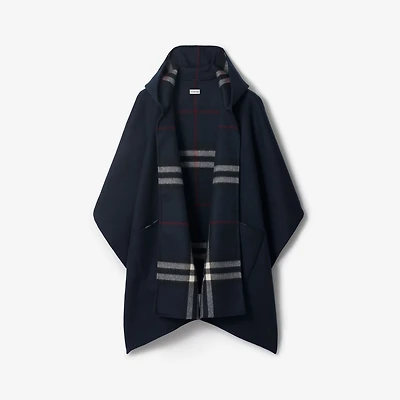Home
The Cape Verdean Blues
Barnes and Noble
Loading Inventory...
The Cape Verdean Blues in Bloomington, MN
Current price: $29.99


The Cape Verdean Blues in Bloomington, MN
Current price: $29.99
Loading Inventory...
Size: OS
After the success of
Song for My Father
and its hit title cut,
Horace Silver
was moved to pay further tribute to his dad, not to mention connect with some of his roots.
Silver
's father was born in the island nation of Cape Verde (near West Africa) before emigrating to the United States, and that's the inspiration behind
The Cape Verdean Blues
. Not all of the tracks are directly influenced by the music of Cape Verde (though some do incorporate
's taste for light exoticism); however, there's a spirit of adventure that pervades the entire album, a sense of exploration that wouldn't have been quite the same with
's quintet of old. On average, the tracks are longer than usual, and the lineup -- featuring tenor saxophonist
Joe Henderson
(a holdover from the
sessions) and trumpeter
Woody Shaw
-- is one of the most modernist-leaning
ever recorded with. They push
into more advanced territory than he was normally accustomed to working, with mild dissonances and (especially in
Henderson
's case) a rawer edge to the playing. What's more,
bop
trombone legend
J.J. Johnson
appears on half of the six tracks, and
sounds excited to finally work with a collaborator he'd been pursuing for some time.
Johnson
ably handles some of the album's most challenging material, like the moody, swelling
"Bonita"
and the complex, up-tempo rhythms of
"Nutville."
Most interesting, though, is the lilting title track, which conjures the flavor of the islands with a blend of Latin-tinged rhythms and
calypso
melodies that nonetheless don't sound quite Caribbean in origin. Also noteworthy are
"The African Queen,"
with its blend of emotional power and drifting hints of freedom, and
"Pretty Eyes,"
's first original
waltz
. Yet another worthwhile
album. ~ Steve Huey
Song for My Father
and its hit title cut,
Horace Silver
was moved to pay further tribute to his dad, not to mention connect with some of his roots.
Silver
's father was born in the island nation of Cape Verde (near West Africa) before emigrating to the United States, and that's the inspiration behind
The Cape Verdean Blues
. Not all of the tracks are directly influenced by the music of Cape Verde (though some do incorporate
's taste for light exoticism); however, there's a spirit of adventure that pervades the entire album, a sense of exploration that wouldn't have been quite the same with
's quintet of old. On average, the tracks are longer than usual, and the lineup -- featuring tenor saxophonist
Joe Henderson
(a holdover from the
sessions) and trumpeter
Woody Shaw
-- is one of the most modernist-leaning
ever recorded with. They push
into more advanced territory than he was normally accustomed to working, with mild dissonances and (especially in
Henderson
's case) a rawer edge to the playing. What's more,
bop
trombone legend
J.J. Johnson
appears on half of the six tracks, and
sounds excited to finally work with a collaborator he'd been pursuing for some time.
Johnson
ably handles some of the album's most challenging material, like the moody, swelling
"Bonita"
and the complex, up-tempo rhythms of
"Nutville."
Most interesting, though, is the lilting title track, which conjures the flavor of the islands with a blend of Latin-tinged rhythms and
calypso
melodies that nonetheless don't sound quite Caribbean in origin. Also noteworthy are
"The African Queen,"
with its blend of emotional power and drifting hints of freedom, and
"Pretty Eyes,"
's first original
waltz
. Yet another worthwhile
album. ~ Steve Huey
After the success of
Song for My Father
and its hit title cut,
Horace Silver
was moved to pay further tribute to his dad, not to mention connect with some of his roots.
Silver
's father was born in the island nation of Cape Verde (near West Africa) before emigrating to the United States, and that's the inspiration behind
The Cape Verdean Blues
. Not all of the tracks are directly influenced by the music of Cape Verde (though some do incorporate
's taste for light exoticism); however, there's a spirit of adventure that pervades the entire album, a sense of exploration that wouldn't have been quite the same with
's quintet of old. On average, the tracks are longer than usual, and the lineup -- featuring tenor saxophonist
Joe Henderson
(a holdover from the
sessions) and trumpeter
Woody Shaw
-- is one of the most modernist-leaning
ever recorded with. They push
into more advanced territory than he was normally accustomed to working, with mild dissonances and (especially in
Henderson
's case) a rawer edge to the playing. What's more,
bop
trombone legend
J.J. Johnson
appears on half of the six tracks, and
sounds excited to finally work with a collaborator he'd been pursuing for some time.
Johnson
ably handles some of the album's most challenging material, like the moody, swelling
"Bonita"
and the complex, up-tempo rhythms of
"Nutville."
Most interesting, though, is the lilting title track, which conjures the flavor of the islands with a blend of Latin-tinged rhythms and
calypso
melodies that nonetheless don't sound quite Caribbean in origin. Also noteworthy are
"The African Queen,"
with its blend of emotional power and drifting hints of freedom, and
"Pretty Eyes,"
's first original
waltz
. Yet another worthwhile
album. ~ Steve Huey
Song for My Father
and its hit title cut,
Horace Silver
was moved to pay further tribute to his dad, not to mention connect with some of his roots.
Silver
's father was born in the island nation of Cape Verde (near West Africa) before emigrating to the United States, and that's the inspiration behind
The Cape Verdean Blues
. Not all of the tracks are directly influenced by the music of Cape Verde (though some do incorporate
's taste for light exoticism); however, there's a spirit of adventure that pervades the entire album, a sense of exploration that wouldn't have been quite the same with
's quintet of old. On average, the tracks are longer than usual, and the lineup -- featuring tenor saxophonist
Joe Henderson
(a holdover from the
sessions) and trumpeter
Woody Shaw
-- is one of the most modernist-leaning
ever recorded with. They push
into more advanced territory than he was normally accustomed to working, with mild dissonances and (especially in
Henderson
's case) a rawer edge to the playing. What's more,
bop
trombone legend
J.J. Johnson
appears on half of the six tracks, and
sounds excited to finally work with a collaborator he'd been pursuing for some time.
Johnson
ably handles some of the album's most challenging material, like the moody, swelling
"Bonita"
and the complex, up-tempo rhythms of
"Nutville."
Most interesting, though, is the lilting title track, which conjures the flavor of the islands with a blend of Latin-tinged rhythms and
calypso
melodies that nonetheless don't sound quite Caribbean in origin. Also noteworthy are
"The African Queen,"
with its blend of emotional power and drifting hints of freedom, and
"Pretty Eyes,"
's first original
waltz
. Yet another worthwhile
album. ~ Steve Huey



![is [Blue/Rust Swirl LP] [Barnes & Noble Exclusive]](https://prodimage.images-bn.com/pimages/0880882653217_p0_v2_s600x595.jpg)

![One Step From The Blues [Blue Vinyl] [Barnes & Noble Exclusive]](https://prodimage.images-bn.com/pimages/0888072643321_p0_v1_s600x595.jpg)

![Tusk [Transparent Blue Vinyl] [Barnes & Noble Exclusive]](https://prodimage.images-bn.com/pimages/0081227815646_p0_v2_s600x595.jpg)
![BLUE PARADISE [HIDE Ver.] [Barnes & Noble Exclusive]](https://prodimage.images-bn.com/pimages/0198704331343_p0_v2_s600x595.jpg)
![So [180g Blue Vinyl] [Barnes & Noble Exclusive]](https://prodimage.images-bn.com/pimages/0884108016985_p0_v5_s600x595.jpg)
![Model [Sea Blue Vinyl] [Barnes & Noble Exclusive]](https://prodimage.images-bn.com/pimages/0075678609374_p0_v5_s600x595.jpg)






